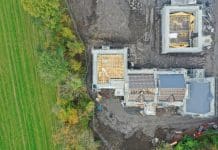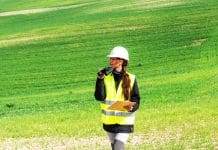Landmark Information is hosting a free seminar on 22 July to provide guidance to purchasers, rural land agents and conveyancers on the range of environmental risks
For anyone about to embark on a purchase of agricultural land and buildings, Landmark Information aims to provide guidance to purchasers, rural land agents and conveyancers on the range of environmental risks that should be taken into consideration, prior to legal completion.
Purchasing land, whether for continued agricultural use, diversification schemes or larger projects such as renewable energy and essential infrastructure can prove complex.
Understanding the land’s historic activities alongside any sensitive habitats and other pathways that could affect the land could help to avoid any liability for the landowners.
Experienced environmental consultant, Stephanie Kerr, will be leading the webinar, which will also include case law examples as well as consider agricultural land uses, what they are, and how they can potentially contaminate land.
Considering land uses
Commenting on the webinar, Stephanie Kerr, said: “Agricultural land uses have the potential to carry many possible environmental hazards, and can pose contamination risks not just on site, but also to surrounding land uses.
“This could be from infilled land, to the use and storage of fuels, pesticides and insecticides, or storage of waste and slurry.
“By considering specific agricultural land uses found onsite and in the surrounding area, purchasers enter a transaction fully informed and aware of any potential hazards that may need further investigation, as well as receiving bespoke recommendations tailored to the specific agricultural land uses identified.”














